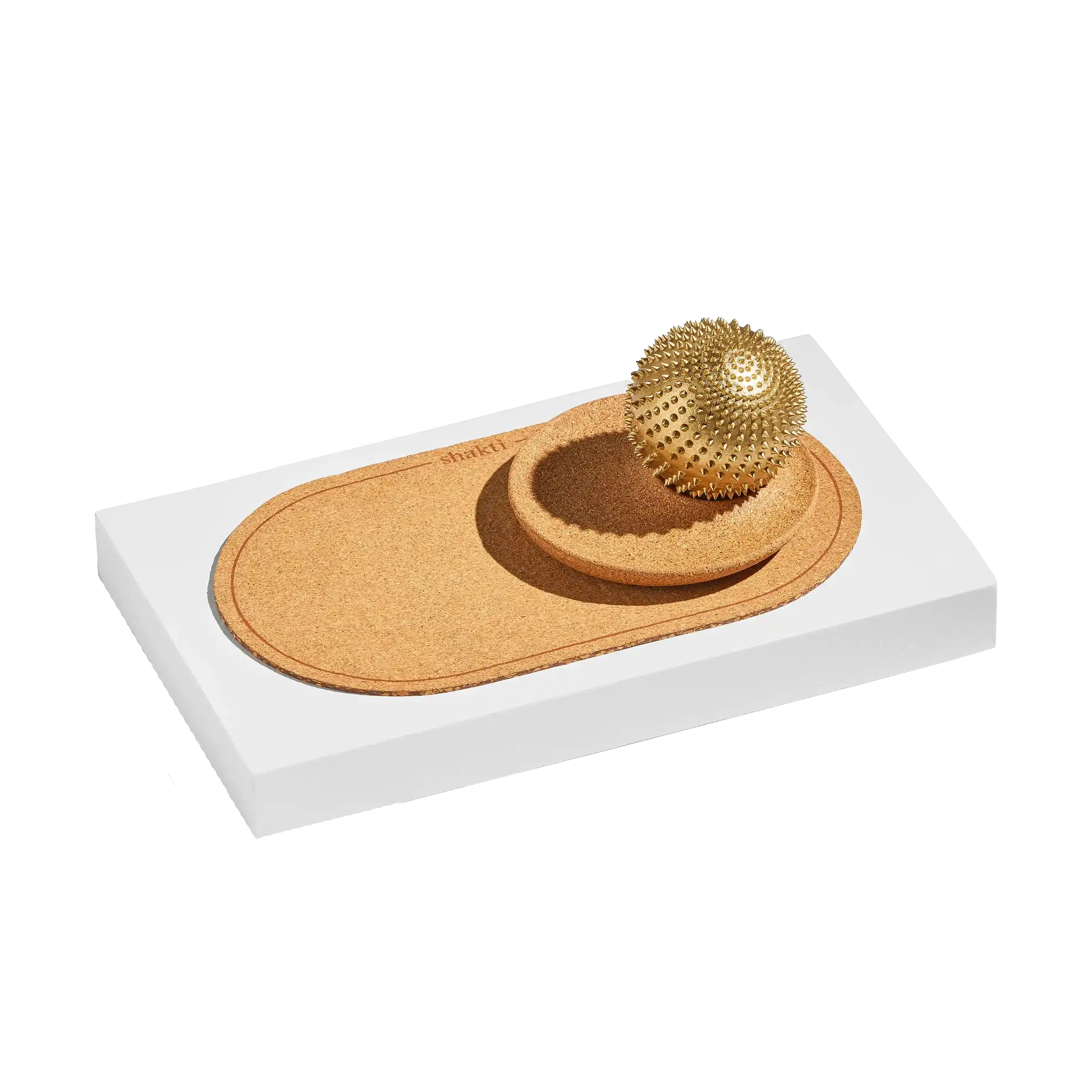The effects of meditation are no secret. Meditation is often associated with greater inner peace, less stress and relaxation - but only very few people know how this effect is achieved. What effect does meditation have on our body and mind? And how do you meditate properly to achieve this effect?
Whether you already meditate regularly or are just starting out: It makes sense to take a close look at the effects of meditation. Because if you understand what exactly happens in your body when you meditate, it is often easier to stick with it - with more motivation and a clear sense of why it is worthwhile.
Mediation is far more than just sitting still and "thinking about nothing". It works on a cellular level, trains the brain and balances systems that you may not even have known were out of sync - at least if you do it right.
So: Ready to put your mind on reception and explore the true effects of meditation? Let's go!
Content
1. the positive effects of meditation - known for thousands of years
The positive effects of meditation - known for thousands of years
Meditation is not a modern trend - even though it is now ubiquitous in podcasts, apps and yoga classes. Its roots go back thousands of years. Even in the ancient cultures of India, China and Japan, people were aware of the effects meditation can have: In silence, you find clarity and you see more when you look inwards instead of outwards.
Meditation has long been an integral part of spiritual practice in Hinduism, Buddhism and Taoism. It was not primarily regarded as a relaxation technique, but as a path to self-knowledge and inner freedom. The effects of meditation range from more serenity to less circling of thoughts, which is why it has also become increasingly popular outside of religious practices over time.
Much of what was already known back then has also been scientifically confirmed in recent decades: Meditation can reduce stress, strengthen the immune system and have numerous other effects on our well-being. The positive effects of meditation are therefore nothing new - but thanks to research, we now also know how they come about.
What does meditation do?
Meditation is like a mini vacation for your mind and body - only without packing your suitcase. Anyone who meditates regularly knows the feeling: more calm, more focus, less drama in everyday life. But what exactly is behind it? How does meditation have this effect? What happens in your body when you close your eyes, concentrate on your breathing and allow the carousel of thoughts to take a break?
In short: your entire system switches from 'flight or fight' mode to 'calm and regenerate' mode. The body shuts down, the nervous system relaxes and your brain has the chance to reorganize itself. This not only makes you feel good in the short term, but can also bring about long-term, positive changes - both physically and mentally.
Meditation is therefore much more than just a way to "calm down". It can change how you feel, how you think and even how you deal with yourself and your environment. But how does that work? How can meditation have such an effect on us?
Let's take a closer look at exactly that!
The effect of meditation on the body
What actually happens in your body when you meditate? A surprising amount - and usually without you even realizing it. Because while you sit quietly on the outside, a fascinating process takes place on the inside and the meditation unfolds its effects. Your nervous system switches over: away from the stress-ridden sympathetic nervous system and towards the parasympathetic nervous system - the part responsible for relaxation, regeneration and healing.
The immediate effect of meditation: your heart beats more slowly, your blood pressure drops and your breathing deepens. You calm down and your body uses this calmness to regulate itself better. The release of stress hormones such as cortisol and adrenaline decreases, which provides a relaxing feeling in the short term and can reduce the risk of stress-related illnesses in the long term. At the same time, neurotransmitters such as serotonin and dopamine are stimulated, which provide a feeling of well-being and balance.
The immune system can also be positively influenced by the effects of meditation. Studies show that regular meditation can lower certain inflammation markers in the blood, which could be particularly interesting for people with chronic inflammation, skin diseases or autoimmune problems. The relaxation technique can also have a positive effect on the sensation of pain. Although pain is still felt, it can be perceived as less stressful.
And the best thing is that these effects of meditation on health and physical well-being do not only arise after months of intensive practice, but after just a few weeks of regular meditation, the first changes in the body can often be seen.
Meditation for mental health
Both body and mind benefit from the effects of meditation. If you sometimes wish your head had a pause button, we have good news: Meditation comes pretty close. Because while the carousel of thoughts usually likes to work overtime, meditation helps you to simply switch off. You learn to observe your thoughts without getting carried away by them.
From a psychological point of view, this is a real feat of strength - but one that is worthwhile. Studies show that regular meditation reduces the activity of the amygdala. This small area of the brain is responsible for anxiety, stress and emotional reactions, among other things. When it becomes less active, you feel calmer and more relaxed - even in situations that would have upset you immediately in the past. At the same time, the prefrontal cortex is strengthened - the area of the brain responsible for conscious decision-making, reflection and self-regulation. This means that you can concentrate better, think more clearly and react more consciously instead of automatically acting on impulse. This not only helps in everyday life, but also when dealing with difficult feelings or thought patterns.
Meditation has also been shown to have positive effects on psychological stress such as anxiety disorders or depression. Many therapeutic approaches - such as mindfulness-based cognitive therapy (MBCT) or MBSR - are based on meditative principles. The aim is not to avoid negative thoughts, but to learn a different way of dealing with them. Not every thought is true. Not every feeling needs to be "solved" immediately. Simply recognizing this can be enormously relieving.
As you can see, meditation has an effect on both the body and the mind that should not be ignored.
How do you meditate properly?
Good news first: anyone can learn to meditate and anyone can benefit from the positive effects of meditation. Staying with it is much more important than perfection.
Whether you are just starting out or already have some experience - here you will learn step by step how to meditate properly, what really matters and how to set up your own little meditation routine without any pressure. Are you ready? Then take a moment - and let's dive in together.
Find the right place
The first step on the path to effective meditation is to find the right place. Your meditation spot doesn't have to be a Zen garden, but you should feel comfortable and it should be as quiet as possible. Switch your cell phone to airplane mode, close the door and, if necessary, let your roommates or family know that you don't want to be disturbed.
Tip: The more often you meditate in the same place, the easier it is for you to arrive - and the better the effect of the meditation can unfold. It can therefore make sense to always use the same room or to use aids such as a yoga mat. Our Shakti meditation cushion, where meditation meets acupressure, or our Shakti Mat are also particularly suitable.
Pay attention to your posture
Meditating does not mean contorting yourself. You don't have to sit in the lotus position if this is uncomfortable for you. The important thing is to keep your back upright, but not to sit stiffly or tensely. Many beginners find it helpful to imagine that they are being gently pulled upwards by a thread. Let your shoulders hang loosely and place your hands gently on your thighs or in your lap.
If you are sitting on a chair, make sure that your feet are stable on the floor. If you prefer to lie down, that's no problem either - but beware, danger of falling asleep! Meditating is like balancing between rest and attention. Your posture supports this balance.
Close your eyes or keep them open? Both are possible. Closed eyes help you to return to your inner self; open eyes (with a soft focus on one point) keep you more alert. Try out what is good for you - both are "right".
Conscious breathing
Breathing plays a central role in meditation. It is always there, often unnoticed - and that is precisely why it is so well suited as a focal point. It is not about changing or controlling the breath. Rather, it is about being consciously aware of it: the flow of air in and out, the gentle movement of the chest, the cool feeling on the tip of the nose when you breathe in.
When the mind wanders - which is completely normal - the breath helps us to find our way back to the here and now. This return to breathing is not a step backwards, but an important part of the practice. Meditation does not mean bringing your thoughts to a complete standstill, but rather constantly refocusing on the present moment.
Especially at the beginning, it can be surprisingly challenging to keep your attention on your breathing. Thoughts about the past or the future may arise - that's part of it. The key is to notice them and then relax and turn back to your breath.
It can also be helpful to integrate breathing exercises into your meditation or to count inwardly - for example, "one" when breathing in, "two" when breathing out - or to say a simple formula to yourself such as: "I breathe in ... I breathe out." The breath thus becomes a stable anchor that always brings you back to the present - without any pressure, but with a noticeable effect. In meditation, the breath is more than just a physiological process. It becomes a bridge between body and mind.
Guided meditation to get you started
Would you like to benefit from the positive effects of meditation, but have no idea how to get started? Then simply let yourself be guided. Guided meditations offer you structure - a friendly voice leads you through the practice, reminds you to breathe and gives you ideas on how to deal with your thoughts. Whether via meditation apps, YouTube or podcasts - there are countless options, from short 5-minute meditations to longer sessions. Mindfulness meditations, body scans or breath observations are particularly helpful for beginners. Many people find it reassuring, especially at the beginning, not to be alone with the silence.
And don't worry: professionals also use guided meditations. They are a practical support - whenever your head isn't playing along.
Compassion instead of judgment
Meditation is not a competition. No "higher, faster, further". And certainly no reason for self-criticism. If you digress - wonderful. If you realize that you have digressed - even better. Because this very moment is the core of the practice: notice, return, continue. Without drama.
The more you look at yourself with patience and compassion, the more the effect of meditation can unfold and the more positively your everyday life will change. Meditation is not just a tool for becoming calmer - it also changes the way you treat yourself. And that starts with not judging yourself for being human while meditating.
How long should you meditate - and how often?
Do you have to meditate every day to notice any benefits? Is the effect stronger with daily meditation? And how long should a session last?
Just a few minutes a day can make a noticeable difference - especially if you keep at it regularly. Many studies show that even 5 to 10 minutes a day is enough to reduce stress, improve focus and strengthen emotional balance. The decisive factor is not the length of the individual meditation, but the regularity. Better short and constant than long and once a month
Daily meditation is therefore ideal, but not a must. Even a few sessions a week can make a big difference - especially if you practise consciously and without pressure. Meditation is not a race, but an invitation to reconnect with yourself again and again. No matter how long. No matter how often.
Conclusion: Meditation has many benefits
The question"What are the benefits of meditation?" has many answers. From better sleep and less stress to more inner clarity. The effects of meditation can be seen both physically and mentally - and often after just a short time. Regardless of whether you want to lower your blood pressure, slow down your thoughts or simply calm down for a few minutes a day: Meditation can help.
It's not about meditating "perfectly", but about pausing regularly, looking inwards and giving yourself space. Without any pressure, without any demands to perform. The more you engage in this practice, the more clearly you will feel the positive effects - in your mind, body and everyday life.
So: if you want to do something good for your mind, start with one breath. And then with the next one. You don't need much - just a few minutes, a little curiosity and the willingness to simply sit still. The rest will follow. Step by step. Breath by breath.
Tip: Use the Shakti meditation cushion or our Shakti Mat to combine meditation with acupressure - for even more relaxation and a particularly beneficial effect.





















